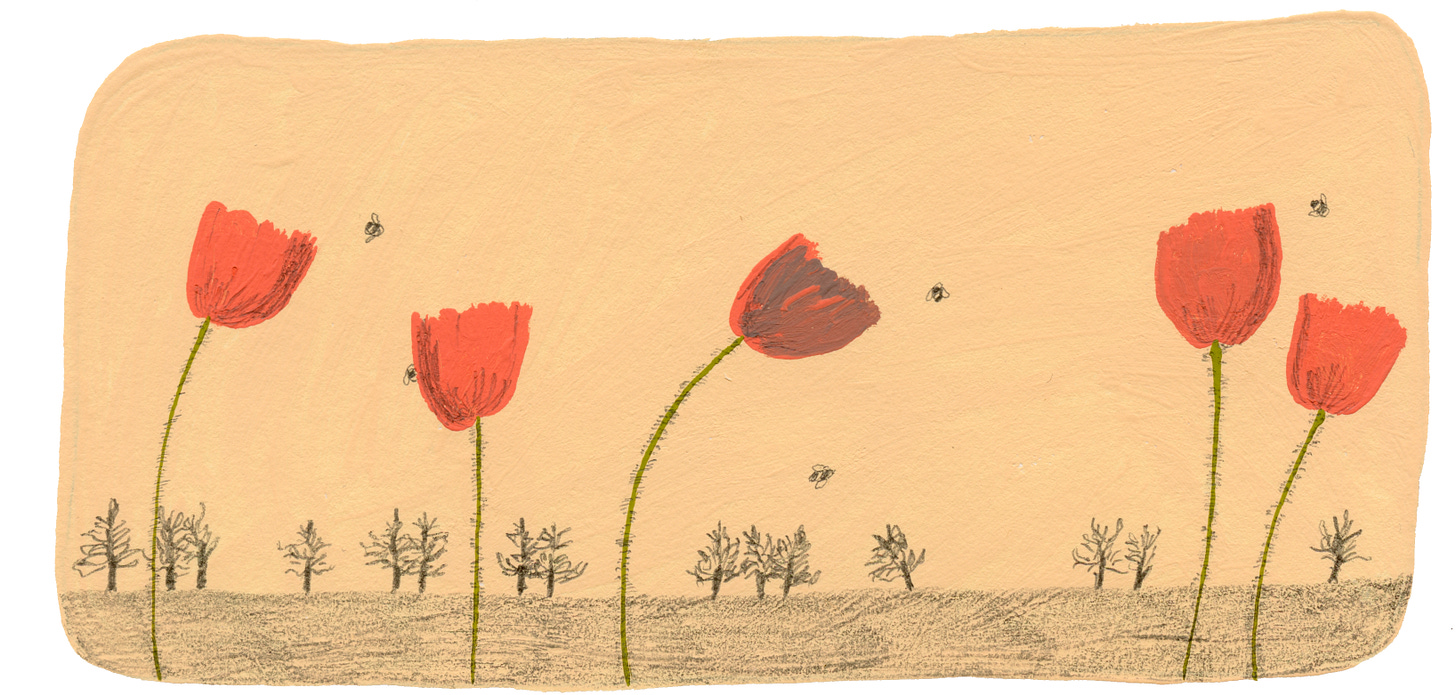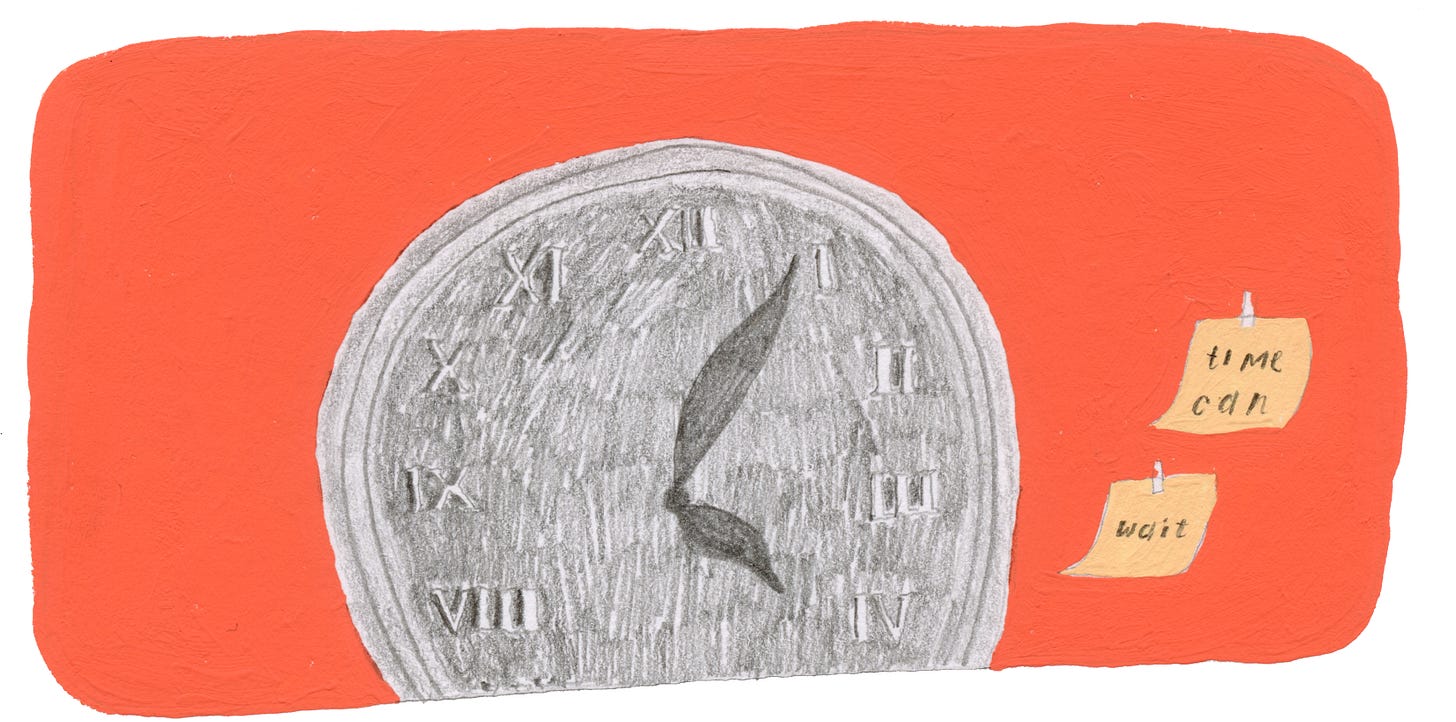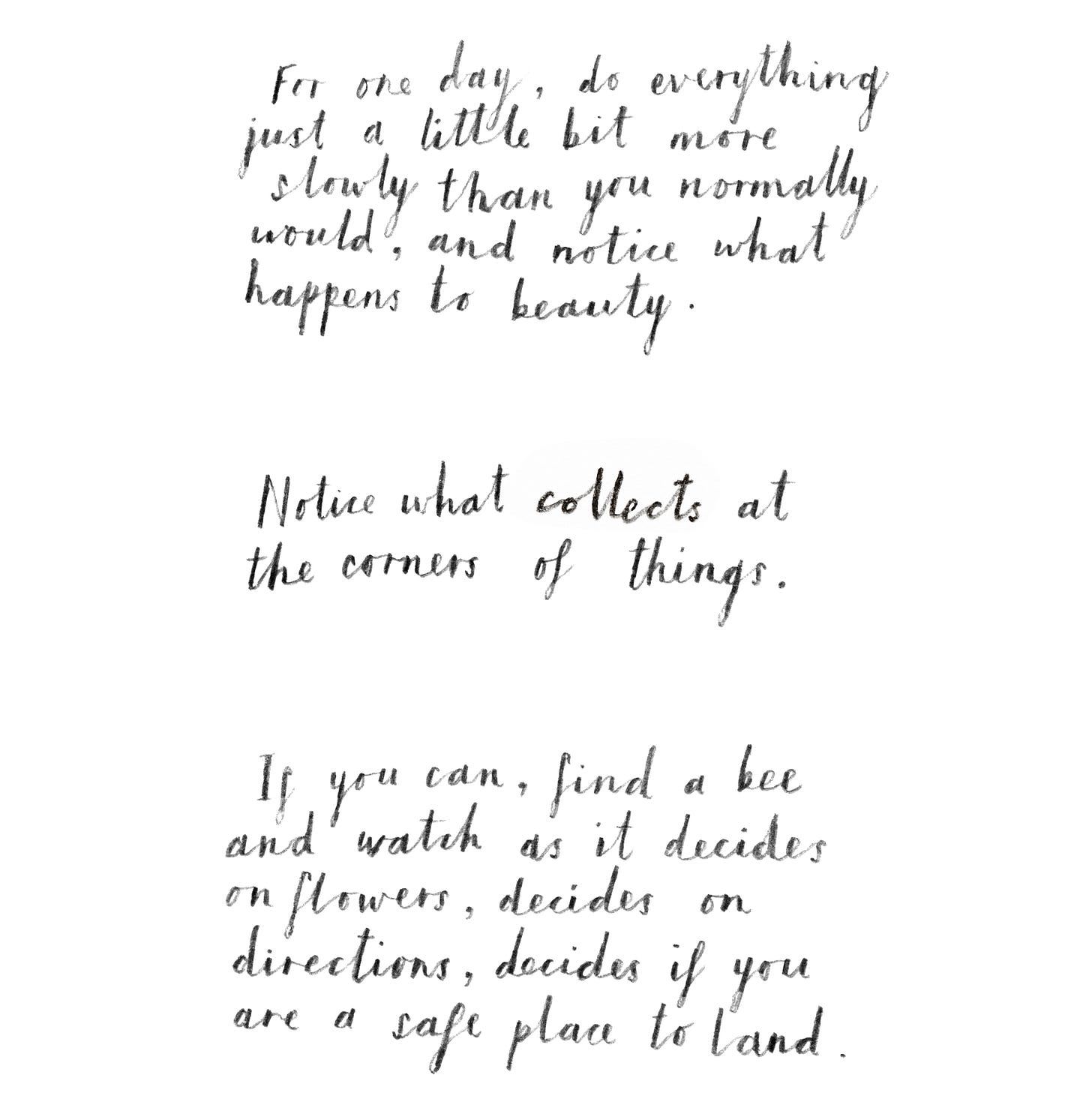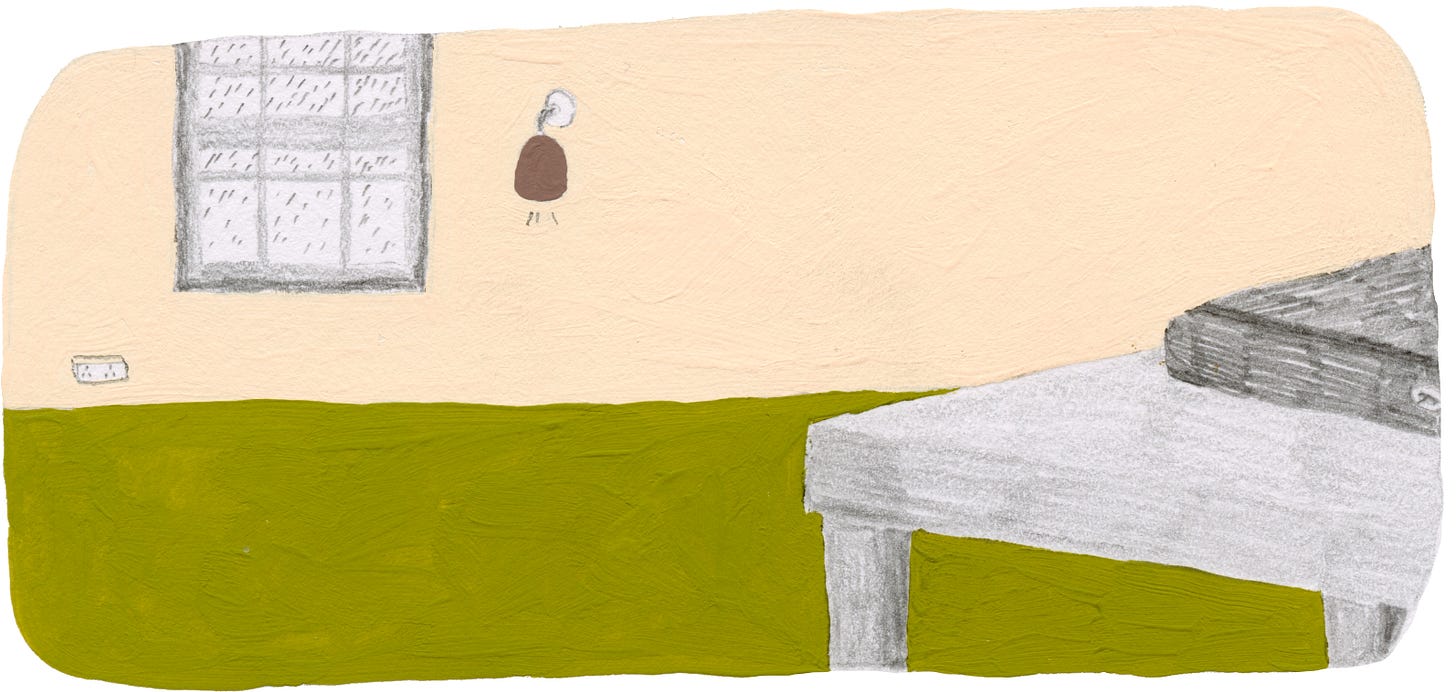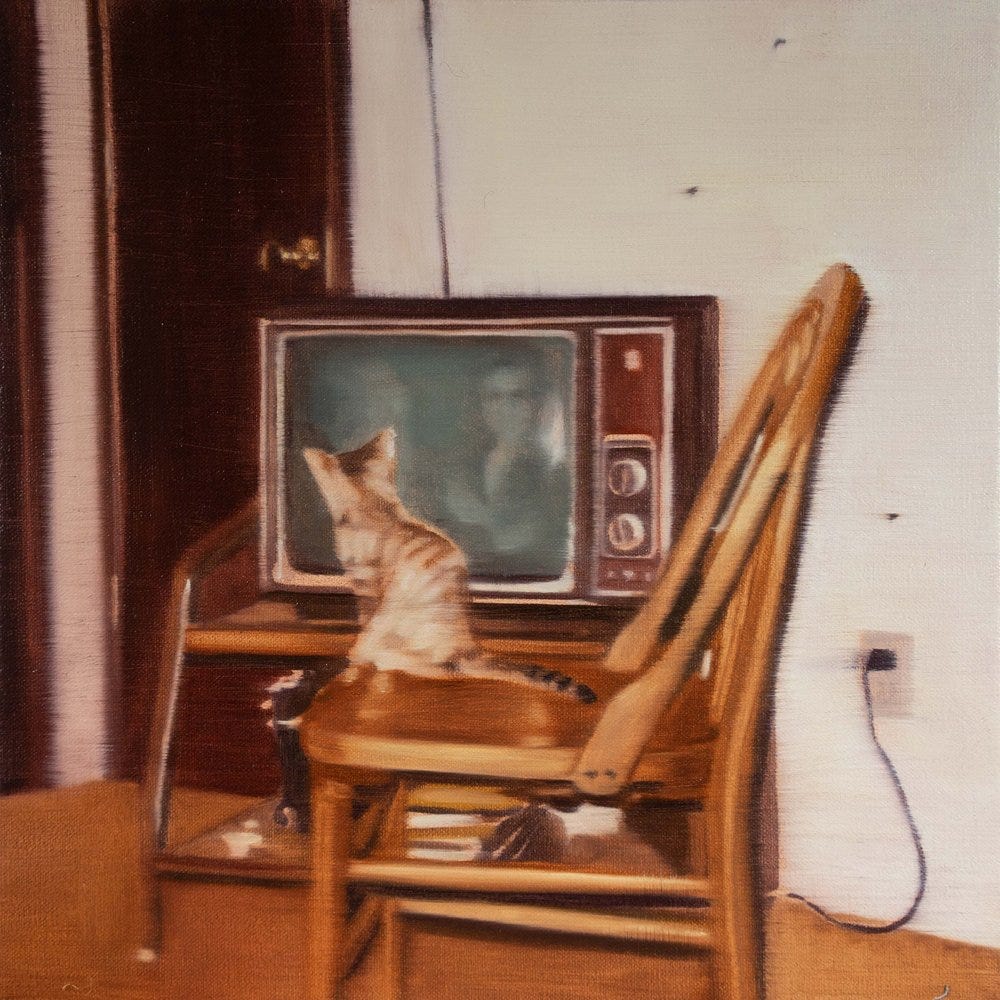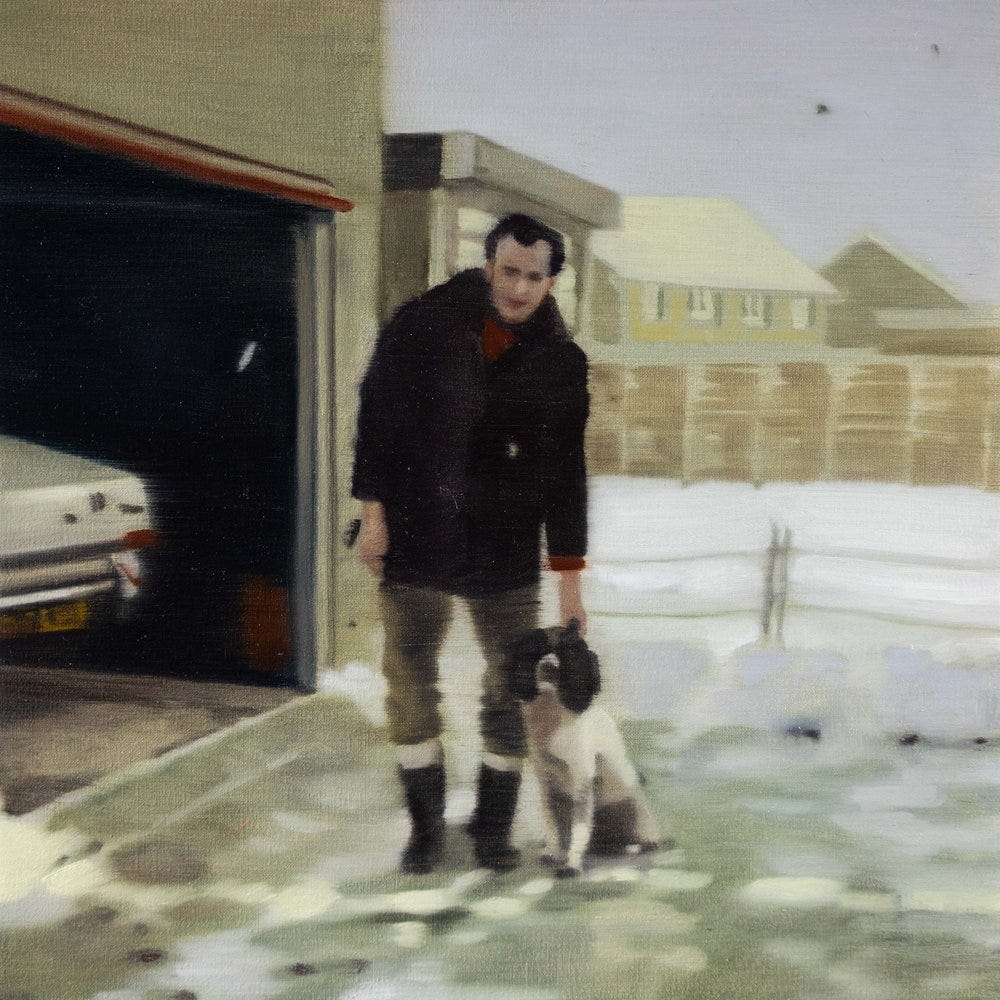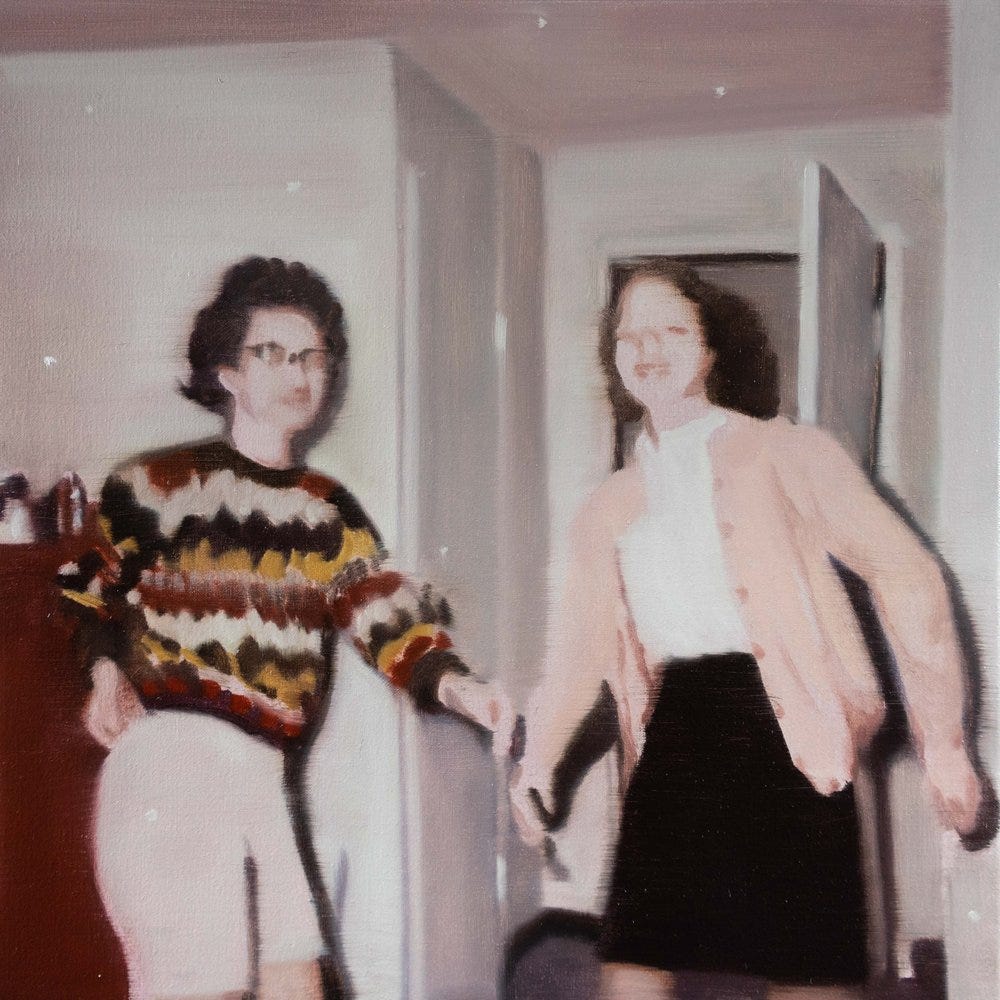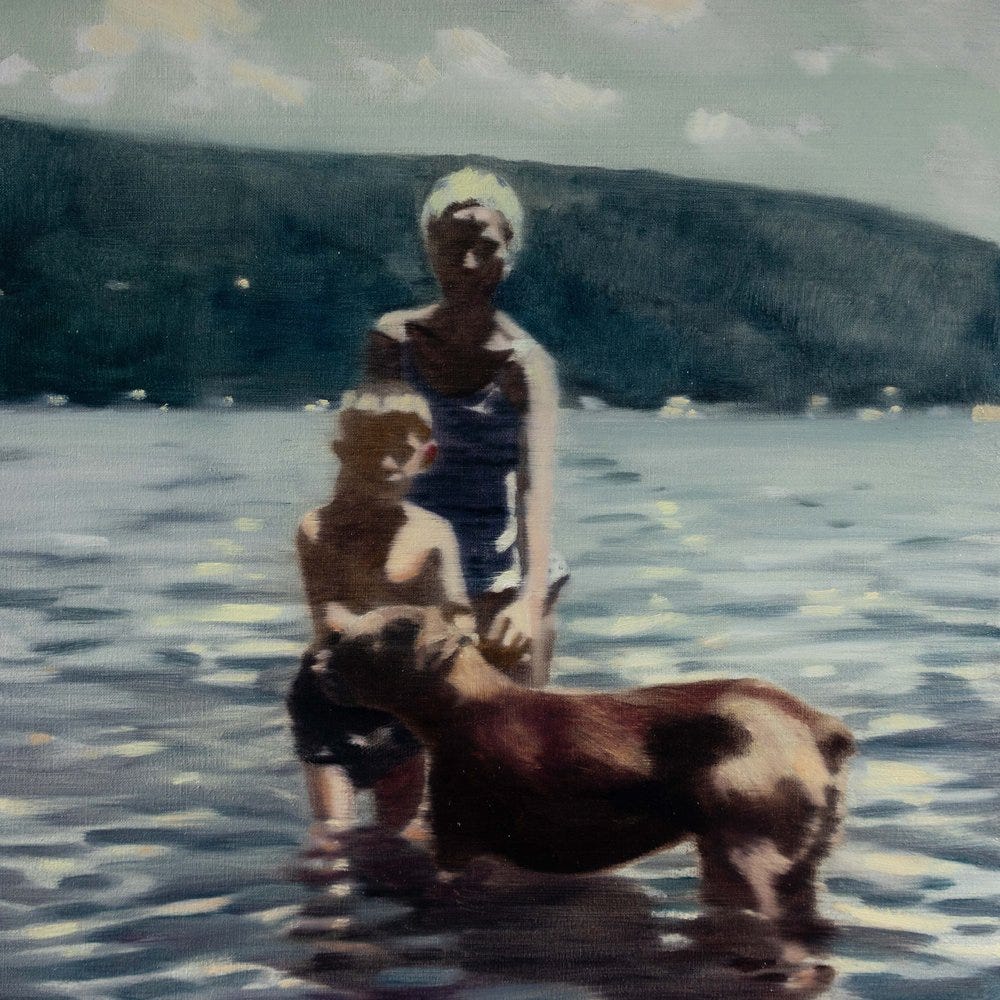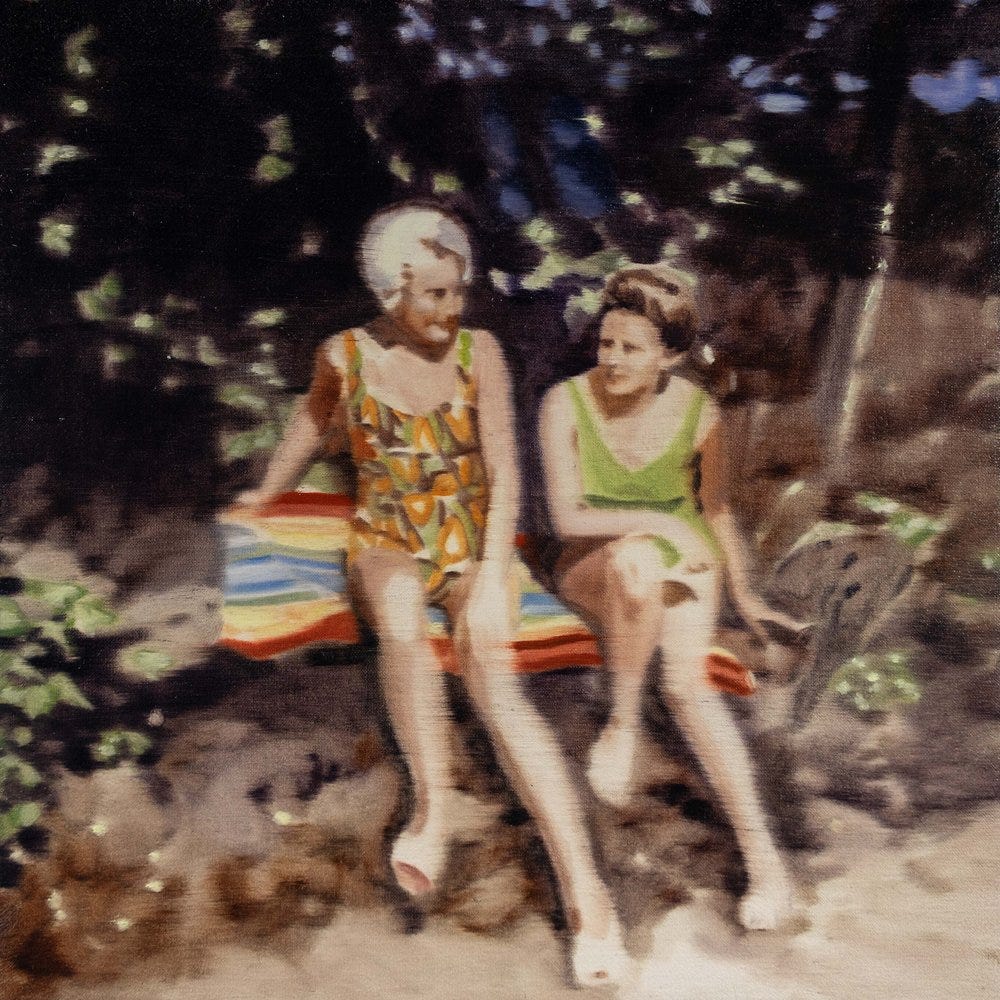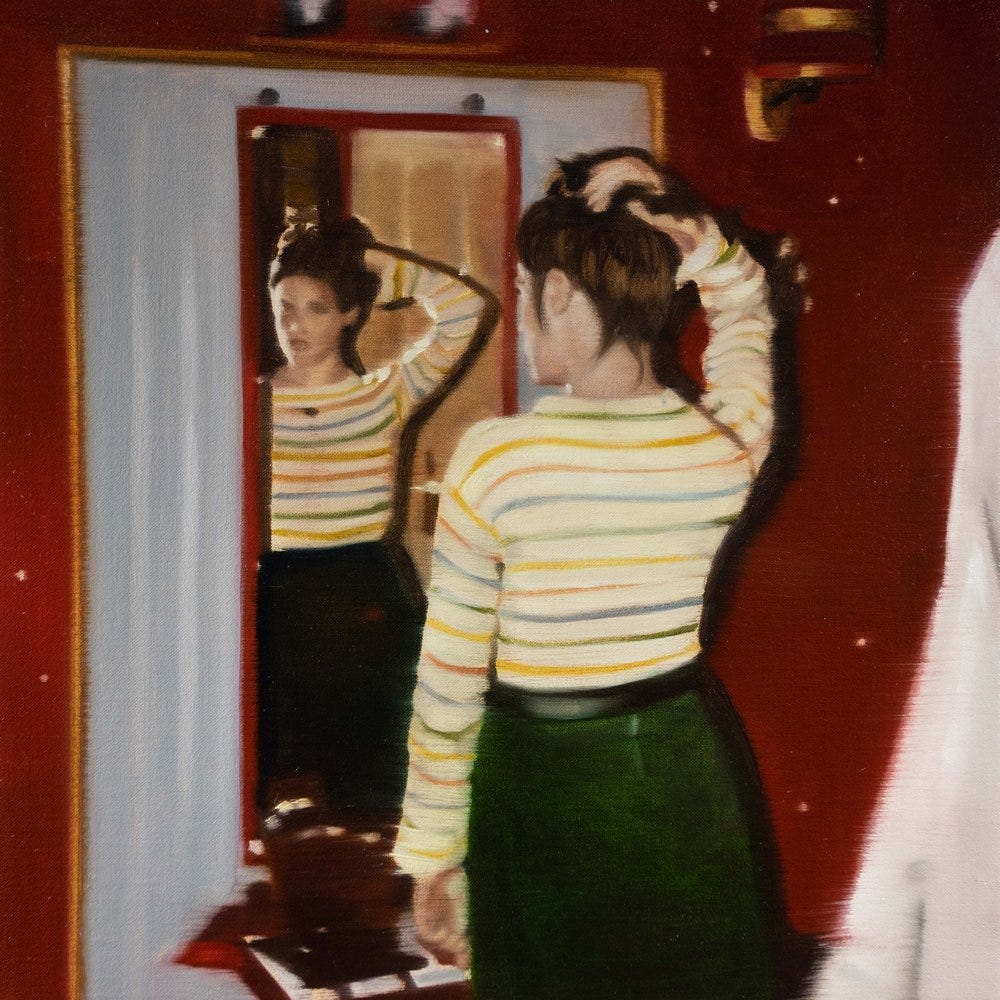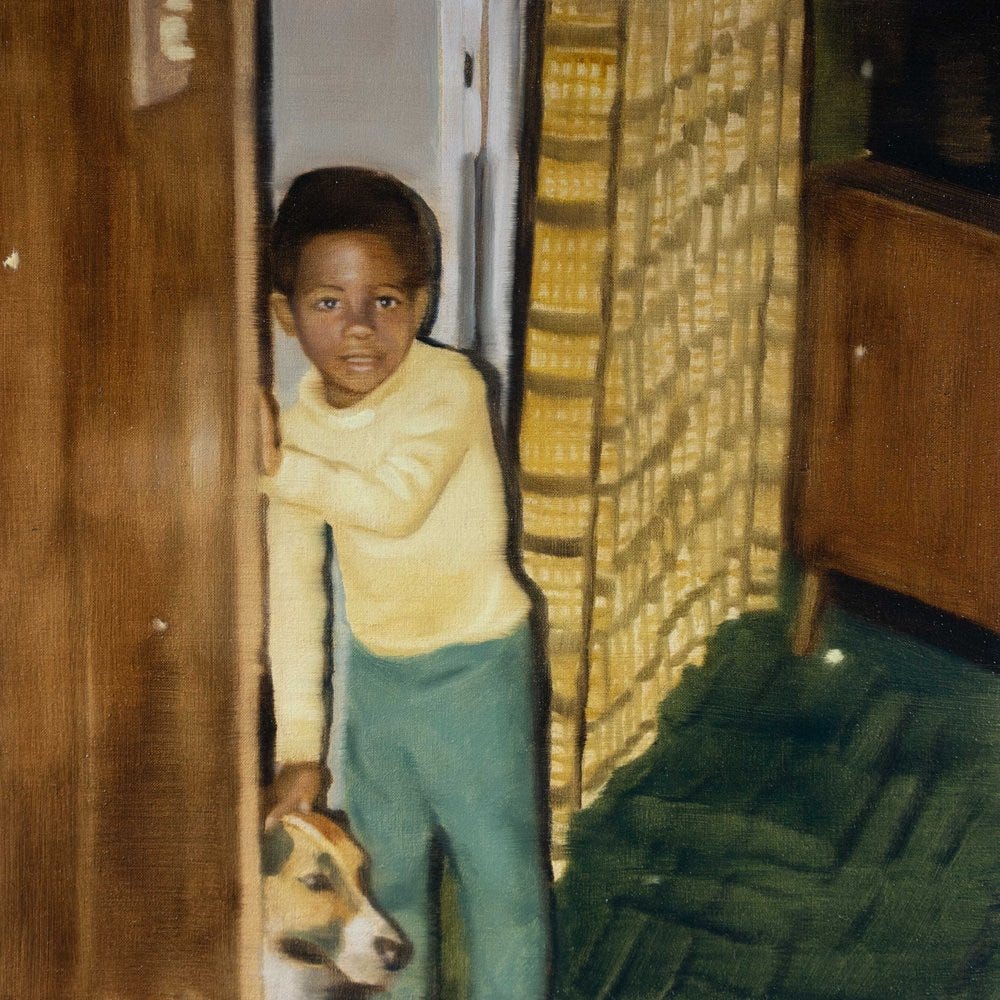No.219
Last week the river here, which is a wide and meandering affair of the surrounding fields and of the heart, flooded incredibly. It didn’t reach into homes, but I heard about the large round hay bales being sighted floating away downriver, like shredded wheat cereal, and both the golf course and the park became fresh lakes in their own right. It was beautiful, and slightly wrecking.
On the golf course lake, the red and yellow flags on white poles—which I assume mark something relevant but do not care to know what exactly—were lapped up, perhaps four feet, by the water, which left the flags looking from a distance like the kind of sail boats that a child would have set loose on a formal pond.
Although the town, most of it formed of grey stone during the 1800s, has always been somewhere ruled by water, with an acknowledgement or respect of the flooding possibility when large rain storms settle in, prior to the clearing of forest the rivers of these landscapes simply wouldn’t have fluctuated in height so dramatically and quickly—the mostly complete treelessness of the surrounding mountains ensures that when it rains heavily, or really rains at all, there is little to stop and absorb the water, instead the rainfall strips the land of sediment and runs off steep sides like it has somewhere important to be.
Autumn itself has arrived swiftly, the leaves accumulating in gently coloured clumps where the pavements step themselves abruptly down to the tarmacked roads, and at this half-way October point it feels possible that we might forget, occupied with now-cold hands, to notice any of it happening and suddenly find ourselves in January.
I listened this week to an episode1 of something about time, and memory, and the differences which can mean our lives either feels slow, stretched, or moving too quickly. The experts in these things explained that our brains create the perception of time from memories, and so it was supposed that novelty and an excitement-filled, routine-less existence might result in time feeling longer than it actually is—a week spent only doing new things feeling like two weeks, or three.
Towards the end of the hour though, it is made clear that time comes to feel longer to us simply when we pay attention, and notice details throughout our days that most of us miss seeing entirely. This is something that I wrote about in Everything, Beautiful, the beauty that can be observed when we consciously slow our frantic, modernised brains down, even just a little. The chapter in the book conspicuously titled ‘Some Beautiful Things I Noticed When I Slowed Down’ is concerned entirely with this, detailing the remarkableness that can come from overhearing things, from being just far enough away from a municipal glass recycling bin, from empty paint tins under stairs, from glancing at whatever is growing wildly on the verges of two-way roads with large speed limits. At the end of the chapter is a suggestion:
The beneficial alterations we might make to our lives are not so large, or interrupting, though I suspect that a great number of us would in fact benefit from the kind of interruption that is blunt and disruptive and unannounced—a reconsidering. We are soothed by routine and predictability, and at the same time we have grown (been instructed to develop) a fear and distaste for boredom, which is something our brains really need, and can use as an ingredient for so many of the recipes which make us the most animal kind of human.
POEM:
Concerned with Atrocities, Before Breakfast
This morning I neatly slice a slightly overripe
slightly wrinkled peach
in half
It occurs to me that so much fruit of faraway places will not get
eaten
Will not get
loved, held
Instead, I read of the words said aloud by a mother in Gaza—
wishing her small baby had never been born because already
its fragile life has
gone, taken by types of violence the universe never meant
to touch its tiny form
The stars I suppose they cry themselves awake, asleep, I cannot focus on anything
because I am eating two peach halves and
walking alongside a river
as the daily promises made by gentle people in hotter, smoke-filled apartment buildings are broken
and burned in ways
that cannot be put back together
THIS WEEK I FELL IN LOVE WITH:
Paintings which sort of feel as if they could in fact be your own memories of some time, some place, from a 2021 exhibition at Sydney Contemporary by Dani McKenzie.
— Jennifer Chang, from Again a Solstice
The Sometimes Newsletter is a reader-supported publication, and if you enjoy reading the best ways you can support are to subscribe, share the newsletter with someone, or consider becoming a paid supporter. The regular, numbered newsletter is currently free for everyone to read, but becoming a paid supporter (if you are able) helps to ensure that in an ever-changing publishing landscape I’m able to continue to dedicate the hours to this newsletter, which is written with the hope that adding small pieces of attention and gritted beauty to the noise of the world will make an honest, soft-edged, affecting dent.
Radiolab, The Secret to a Long Life (from October 6th 2023)



